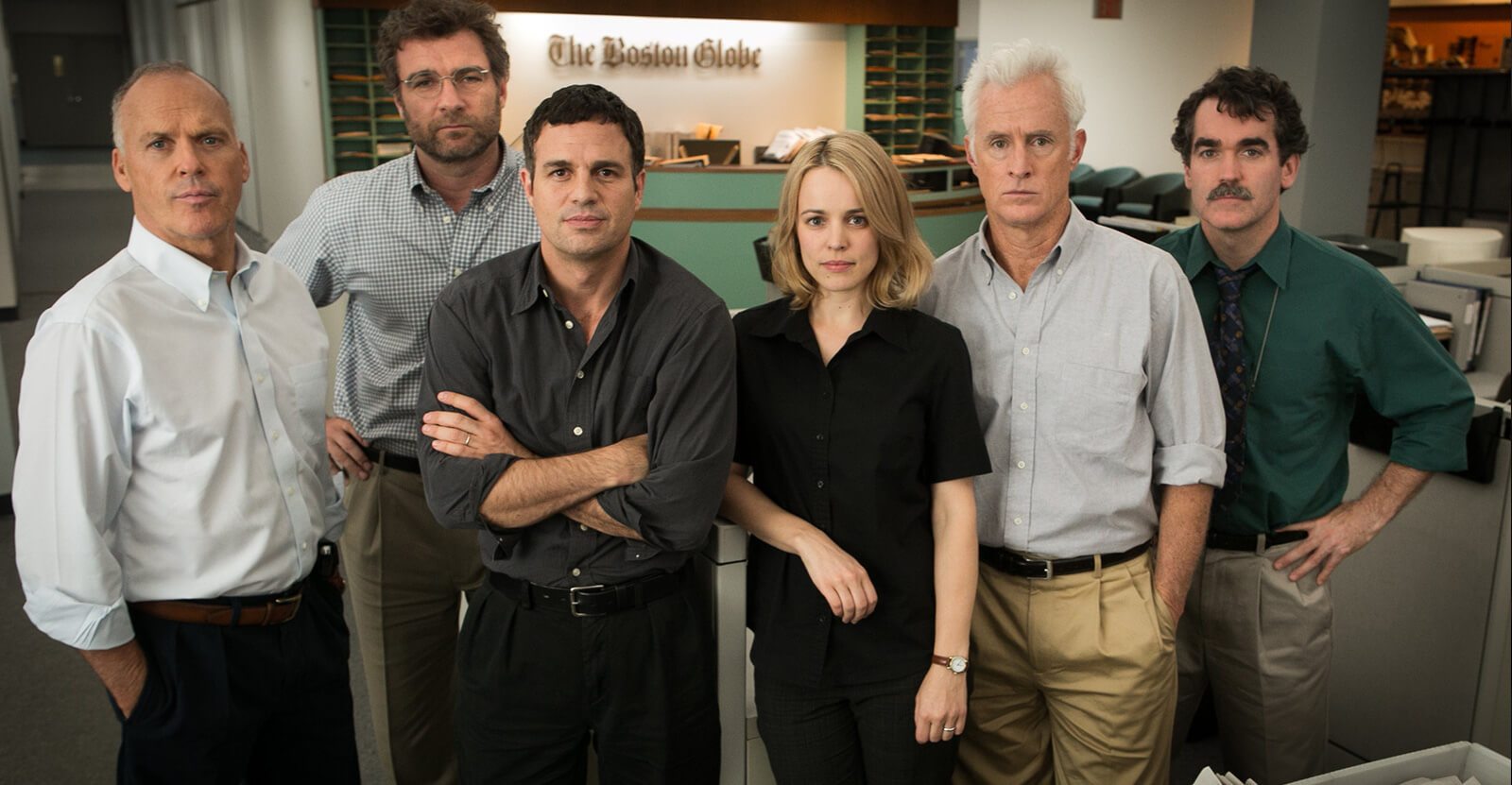Spotlight
Investigative journalism is a profession long held in high regard, with the tireless hacks searching and butting heads with powerful institutions to write the truth and to help the voiceless find justice. Unsurprisingly, then, this job has often been the subject of some fantastic drama, and Spotlight has proven to be no exception. The movie deals with a scandal that has been part of the global consciousness for years now, on both a personal and a national level, and in doing so, offers one of the incredible and powerful films of the year.
Spotlight is an investigative team at the Boston Globe – the film follows this group of reporters in 2001, where their new editor has commissioned them to investigate allegations against John Geoghan, an unfrocked priest accused of molesting more than 80 boys. They interview victims and attempt to unseal sensitive documents linked to the case, uncovering the scale of sexual abuse and its covering up within the Roman Catholic Church. They make it their mission to provide proof and to see the story told right.
Spotlight is proof that a powerful script and performance can hold the viewer’s attention just as well, and it rewards the viewer immensely
The story of priests abusing children is now a well-known one, but to watch it be discovered for the first time is a completely engrossing story and one that holds you attention throughout. Our lead cast are all incredibly good – both Mark Ruffalo and Rachel McAdms have Supporting Oscar nominations for their roles as reporters Michael Rezendes and Sasha Pfeiffer, but really, any of them could’ve received the nod and it would’ve been justified. However, everyone who appears is simply fantastic – many of the one-scene characters only have a minute or two to grab you, and they truly succeed.
This is a serious drama about serious people trying to expose an incredibly serious subject – it is not an action movie, although it is far more thrilling than one. Spotlight is proof that a powerful script and performance can hold the viewer’s attention just as well, and it rewards the viewer immensely. It has been compared to 1976 Watergate-em-up All the President’s Men (high praise indeed), stylistically downplayed with a focus on narrative and character that serves only to enhance the movie – you feel that this is the real world.
In an Oscar season that sees everyone going on about Mad Max and Leonardo DiCaprio, I fear that this film – to my mind far superior to either, and a more deserving Best Picture winner – may get swept under the radar a touch, and that would be a tragedy
In a somewhat unprecedented move for a film based on true events, it also actually sticks to the truth very closely. When getting caught up in the drama, though, it is somewhat easy to forget that – thusly, when the film emphasises the level of depravity and the sheer numerousness of the abusive priests, you become aware that it is all firmly rooted in reality. One scene sees Sasha come face to face with one of the abusive priests, who readily admits his complicity in abuse, excusing it on the grounds that it wasn’t for his sexual gratification. Moments like these are scattered throughout the film (one character, when questioned about his family’s reaction to his abuse, states that his mother put out cookies for the priest), and it helps generate a skin-prickling realism that will resonate with any viewer.
In an Oscar season that sees everyone going on about Mad Max and Leonardo DiCaprio, I fear that this film – to my mind far superior to either, and a more deserving Best Picture winner – may get swept under the radar a touch, and that would be a tragedy. They say that the mark of a great film is one that stays with you long after you leave the cinema, that gets under your skin and that truly makes you think, and this is a film that manages all three with aplomb. If you haven’t seen it, I couldn’t recommend it more.
Director: Tom McCarthy
Starring: Mark Ruffalo, Michael Keaton, Rachel McAdams, Liev Schreiber, John Slattery, Stanley Tucci
Running Time: 128 Mins
Country: USA

Comments (1)